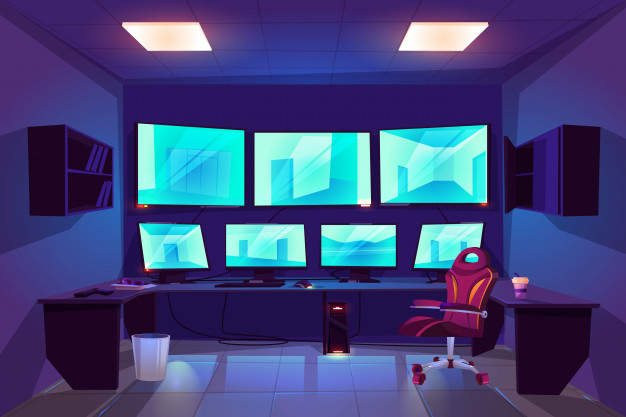How Can You Use Social Media with Du Internet for 1 Day

Impact of Internet of Things on Cities of UAE – Du Prepaid Analysis
February 7, 2020
Du Internet Business Plan Explains Internet of Things in 2020
February 11, 2020DOHA, Qatar- – Since the suicide of an underneath natural product merchant in Tunisia. The Arab world has created a portion of the world’s most-followed stories. History will discover the news leaving Arab nations during this time both holding and ample. Furthermore, we will also discuss how du internet for 1 day can help you with your social media surfing.
Less is known, be that as it may, of the news and data arriving at Arab nations and networks during this period. Now and again much is on the basis of, state, Twitter dependence in Tunisia. Satellite TV reliance in Egypt, or tablet use in the exceptionally close Arab Gulf.
To all the more thoroughly study how individuals in the Arab world access news and data. Rate the believability of data sources, and utilize web-based life. Northwestern University in Qatar appointed an overview among individuals in eight Arab nations. This includes Egypt, Tunisia, Bahrain, Qatar, Lebanon, Saudi Arabia, Jordan and the UAE.
Harris Interactive led a blend of eye to eye and phone interviews with 9,693 grown-ups matured 18 and more established. Members have posed a wide scope of inquiries on media- – from issues of paper use. Book perusing and blogging to web-based banking and gaming- – with a substantial accentuation on Internet use. Members were met in late 2012 and mid-2013. Northwestern University in Qatar constructed an intuitive site to make the information accessible to people in general.
Social Media Studies
Individuals love to mourn the nature of reporting, however, most respondents in the study accept things have been improving. Respondents in the Northwestern study, for instance, is solstice whether the quality from news revealing in the Arab world. The news improves over the past two years, and input was overwhelmingly positive. Members are bound to concur than differ that announcing has improved. By proportions of more than 19 to 1 in Jordan and 21 to 1 in Saudi Arabia.
Tunisia and Egypt, which ousted censorial systems in 2011, are regardless far less intrigued. Lebanon, home to one of the freest press frameworks in the Arab world. It was additionally less moved by columnists’ records in recent years.
TV remains the most significant wellspring of news and data in all nations, aside from Bahrain and Qatar. Qatar has at any rate of 2.3 million phones in a nation of around 2 million individuals. As indicated by the CIA World Factbook, which may help clarify the nation crawling ceaselessly from TV. Unexpectedly, Qatar likewise announced the most significant level of tablet proprietorship, 34 percent, of any nation reviewed. Web dependence is least in Egypt, which is reliable with past research on both Internet infiltration and ignorance in that nation.
While respondents over the Arab world are satisfied with journalistic advancement in their locale in recent years. The challenge to some degree when solicited to rate the unwavering quality from the news they get from TV. These states are in papers, on the web and radio.
Results from Study
Among respondents from the insurgency developing nations, Egypt and Tunisia, the viewpoint is grim for all media yet TV (which despite everything turns out wounded). Qataris, Bahrainis and Lebanese are marginally increasingly certain about TV, papers, and the Internet. Respondents in the UAE, host to a wide scope of provincial outlets and western endeavors, for example, CNBC, BBC, Rolling Stone, Google, and Forbes, discover all media sources solid. Neighborhood papers in the UAE will, in general, get high unwavering quality evaluations; papers in the nation are all administration claimed, respondents despite everything rate broadsheets well.
Asked all the more by and large whether media in their nations are sound, larger parts in five nations – Jordan, Saudi Arabia, Qatar, the UAE, and Bahrain- – attested.
The idea that the impact of online networking in Arab political change has been exaggerated during the Arab uprisings has itself been rehashed so frequently it’s almost buzzword. In any case, internet-based life is powerful diverts in Arab nations.
Members in the Northwestern review spend a normal of 3.2 hours daily on interpersonal organizations. Tunisian and Bahraini Internet clients are the most ravenous social organizers, each giving 4.1 hours day by day. (Bahrain, it ought to be stated, had the most noteworthy generally speaking media utilization; more respondents in Bahrain read books, papers, magazines, and tune in to radio than some other Arab nation reviewed).
Over 90 percent of Internet clients in all nations utilize interpersonal interaction locales. This is except for Qatar and Egypt, at 74 and 86 percent, individually. Qatar’s relative coolness toward web-based life is maybe astounding. As the nation was second when all is said in done Internet utilization just to the UAE and has the biggest rate (79) of remote handheld clients.
Qatar and Bahrain
Qatar, however, has the littlest national populace by a wide margin of any nation studied. This is not exactly a large portion of the size of the following biggest nation by the populace, Bahrain. Qatari nationals in the study recorded relational contacts- – companions, family, partners. As progressively significant wellsprings of news and recent developments than the Internet. Locale wide, relational contact was second just to TV as a wellspring of news and recent developments.
Facebook is by a wide margin the most mainstream informal community in Arab nations overviewed, with 94 percent of interpersonal organization clients dynamic on the system. The greater part of interpersonal organization clients in the example is dynamic on Twitter, 46 percent utilize Google+, and around one out of seven use Instagram. Only 6 percent of social organizers use LinkedIn- – instinctive maybe, given proficient presentations are still frequently energized by tea and handshakes in Arab nations.
Frames of mind toward the right to speak freely of discourse online are blended, with the general lion’s share of members preferring on the web opportunity of articulation.
At the point when the information is analyzed by country, dominant parts in seven nations accept individuals ought to have the option to communicate their suppositions on the web, regardless of whether those perspectives are conceivably flammable, and a weighty majority of Egyptians additionally concurred. Three-fourths of members in Saudi Arabia, a Wahabbist-inclining nation, voiced help with the expectation of complimentary discourse on the web.
Final Words
Asked whether their nations should all the more firmly direct the Internet, be that as it may, members demonstrated less libertarian notion. Dominant parts or majorities in each Arab nation overviewed bolster more noteworthy control of the web, much more in this way, strangely, in nations generally steady online right to speak freely. Review members appear to state, at that point, that while it’s alright for websites to state what they wish, there’s a significant help for government reconnaissance of the Internet in respondents’ nations and networks.
Northwestern University in Qatar’s review of Arab media use did exclude a couple of the most strategically and militarily charged nations in the district, for example, Syria, Libya, and Palestine. In the end, if you feel you have any queries related to du internet package one day (1) then you can contact our sales agent through messenger.




